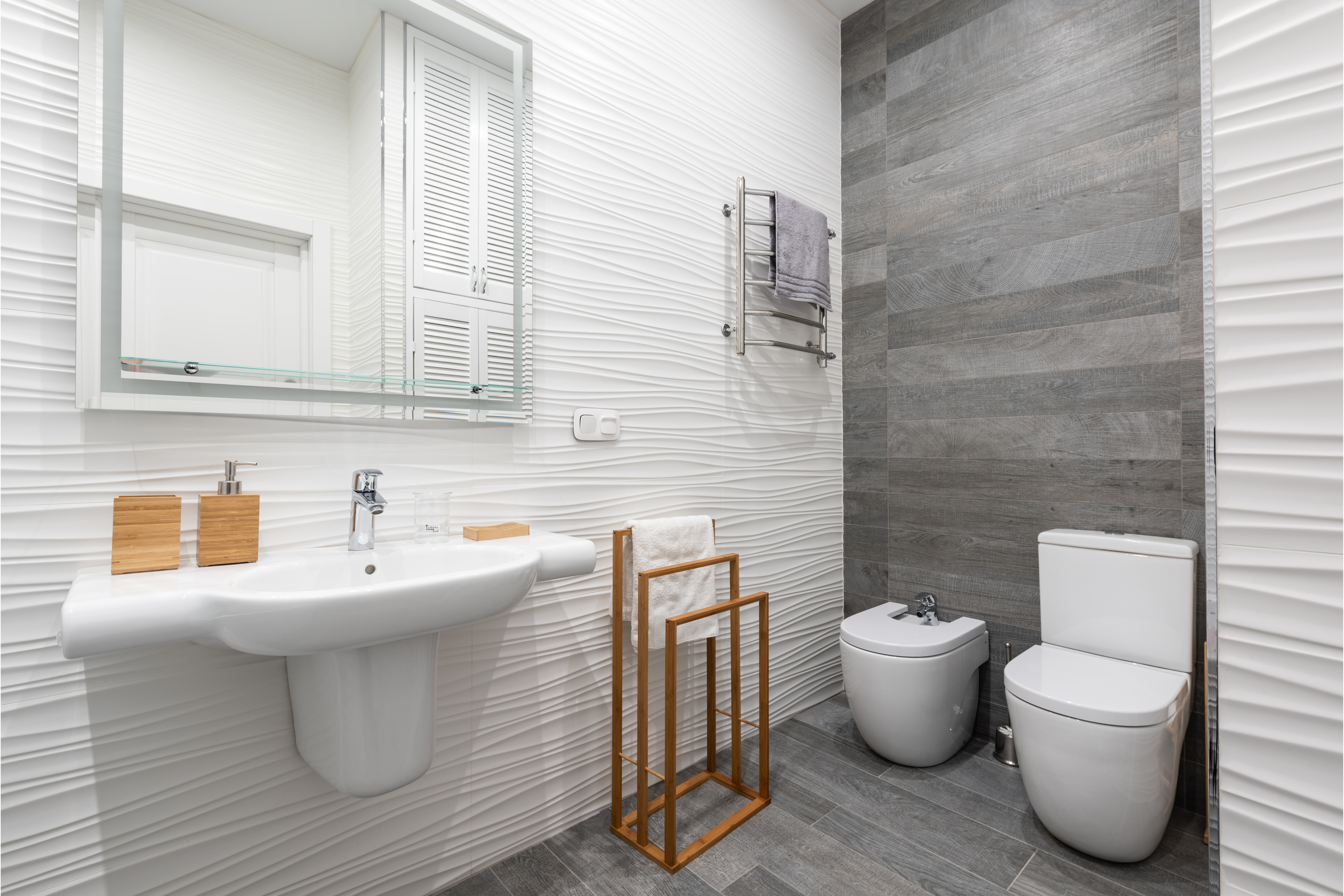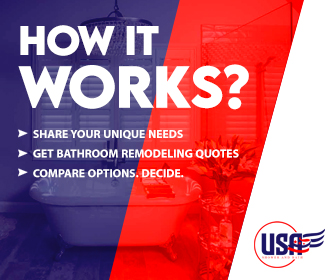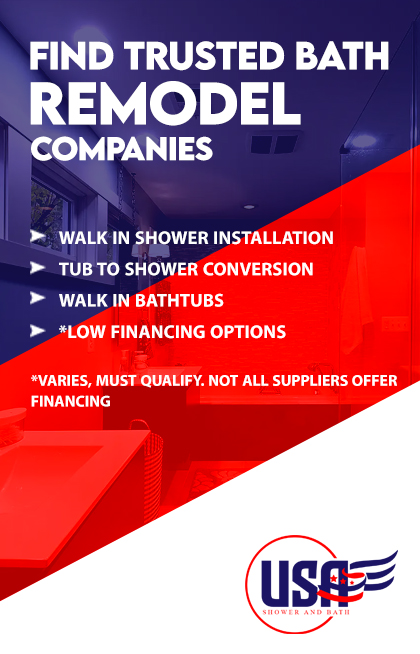
What Are the Best Materials for Bathroom Remodeling?
When it comes to remodeling a bathroom, the materials you choose can significantly impact the overall look, feel, and functionality of the space. The right materials not only enhance the aesthetic appeal but also ensure durability, ease of maintenance, and value for money. This comprehensive guide explores the best materials for bathroom remodeling, covering everything from flooring and countertops to fixtures and finishes. By the end, you’ll have a better understanding of how to choose the right materials to create a bathroom that is both beautiful and practical.
Flooring Materials
Porcelain and Ceramic Tile
Porcelain and ceramic tiles are among the most popular choices for bathroom flooring, and for good reason. These materials are highly durable, water-resistant, and available in a wide variety of colors, patterns, and textures. Porcelain tiles are denser and less porous than ceramic tiles, making them more water-resistant and suitable for high-moisture areas like bathrooms. While they are easy to clean and maintain, they can be cold underfoot and hard, which may be uncomfortable for long periods.
Natural Stone
Natural stone, such as marble, granite, slate, and travertine, offers a luxurious and timeless look for bathroom flooring. Each type of stone has its unique characteristics and can add a touch of elegance to your bathroom. However, natural stone requires regular sealing to maintain its appearance and prevent water damage. Though expensive, its durability and aesthetic appeal make it a worthwhile investment.
Vinyl Flooring
Vinyl flooring is an affordable and versatile option for bathroom floors. It comes in a variety of styles, including sheets, tiles, and planks, and can mimic the look of more expensive materials like wood or stone. Vinyl is water-resistant, comfortable underfoot, and easy to install and maintain. However, it can be less durable than tile or stone and may not add as much value to your home.
Engineered Wood
Engineered wood flooring consists of a plywood core with a hardwood veneer, offering the beauty of wood with improved moisture resistance. While not as water-resistant as tile or vinyl, engineered wood can work in bathrooms with proper care and maintenance. It provides a warm, natural look but requires careful upkeep to prevent water damage.

Wall Materials
Ceramic and Porcelain Tile
Ceramic and porcelain tiles are excellent choices for bathroom walls. They are easy to clean, water-resistant, and come in a wide range of styles. Tiles can be used to create beautiful backsplashes, shower surrounds, or even full wall coverings. While they can be expensive and often require professional installation, the end result is a highly durable and aesthetically pleasing wall surface.
Glass Tile
Glass tile is a stylish and modern option for bathroom walls. It reflects light, making the space feel brighter and more open. Available in various colors, shapes, and sizes, glass tiles allow for creative and unique designs. However, they can be more expensive and show water spots and fingerprints.
Natural Stone
Natural stone can also be used for bathroom walls, providing a luxurious and elegant look. Stone tiles or slabs can create a stunning feature wall or shower surround. As with flooring, natural stone requires regular sealing and maintenance. While the initial cost is high, the durability and unique patterns of natural stone can make it a valuable addition to your bathroom.
Beadboard
Beadboard is a type of wainscoting that can add a charming, traditional look to bathroom walls. It consists of narrow, vertical planks with a tongue-and-groove design and is typically made from wood or MDF (medium-density fiberboard). Beadboard can be painted in any color, providing a durable wall covering. However, it is not as water-resistant as tile or glass and requires regular maintenance and repainting.

Countertop Materials
Quartz
Quartz countertops are made from engineered stone, consisting of natural quartz crystals combined with resin. This material is highly durable, non-porous, and resistant to stains and scratches. Quartz is available in a wide range of colors and patterns, including some that mimic the look of natural stone. While expensive, its durability and low maintenance make it a popular choice for bathroom countertops.
Granite
Granite is a natural stone that offers a beautiful and durable option for bathroom countertops. Each slab of granite is unique, providing a one-of-a-kind look. Granite is resistant to heat and scratches but requires regular sealing to maintain its appearance and prevent stains. Though costly, it adds significant value to your home.
Marble
Marble is another natural stone that adds a touch of luxury to bathroom countertops. Known for its elegant veining and timeless beauty, marble is more porous than granite and can be prone to staining and scratching. Regular sealing and maintenance are necessary to keep marble looking its best. Its high cost reflects its luxurious appeal and value addition to your bathroom.
Solid Surface
Solid surface countertops are made from a blend of acrylic and polyester resins. They are non-porous, durable, and available in a wide range of colors and patterns. Solid surface countertops can also be seamlessly integrated with sinks and backsplashes for a clean, modern look. While they can be prone to scratching and heat damage, their versatility and ease of maintenance make them a practical choice for many bathrooms.

Shower and Tub Materials
Acrylic
Acrylic is a popular material for shower and tub surrounds due to its affordability and ease of installation. It is lightweight, durable, and available in a variety of colors and styles. Acrylic is also resistant to mold and mildew, making it a low-maintenance option. However, it can scratch and discolor over time.
Fiberglass
Fiberglass is another affordable option for shower and tub surrounds. It is lightweight, easy to install, and available in various colors and styles. Fiberglass is also resistant to mold and mildew, but it can be more prone to scratching and fading than acrylic. Its low cost and ease of maintenance make it a practical choice for budget-conscious homeowners.
Porcelain-Enameled Steel
Porcelain-enameled steel is a durable and affordable option for bathtubs. It consists of a steel base coated with a layer of porcelain enamel, making it resistant to scratches, stains, and fading. However, it can chip if heavy objects are dropped on it and feels cold to the touch compared to other materials. Its affordability and durability make it a popular choice for many bathrooms.
Cast Iron
Cast iron bathtubs are known for their durability and classic look. Coated with a layer of porcelain enamel, they are resistant to scratches, stains, and fading. Cast iron tubs are heavy and require additional structural support but retain heat well and provide a luxurious bathing experience. Despite their high cost, their long-lasting durability and timeless appeal make them a worthwhile investment.

Vanity Materials
Wood
Wood vanities offer a warm and natural look for bathrooms. Available in various styles, from traditional to modern, they can be stained or painted to match your decor. Wood vanities should be sealed to protect against moisture and prevent warping. While they require regular maintenance, their versatility and aesthetic appeal make them a popular choice.
MDF (Medium-Density Fiberboard)
MDF is a budget-friendly alternative to solid wood for bathroom vanities. Made from wood fibers and resin, it offers a smooth and uniform surface that can be painted or laminated. While less durable than solid wood, MDF is less prone to warping and can be an affordable option for many homeowners.
Plywood
Plywood is another cost-effective option for bathroom vanities. Made from layers of wood veneer, it provides strength and stability. Plywood can be finished with a wood veneer, laminate, or paint to match your bathroom decor. It requires sealing and maintenance but offers a strong and versatile option for vanity construction.
Metal
Metal vanities, such as stainless steel or aluminum, offer a sleek and modern look for bathrooms. Durable, water-resistant, and easy to clean, metal vanities are ideal for contemporary or industrial-style bathrooms. However, they can be expensive and prone to fingerprints and smudges.

Fixtures and Finishes
Faucets and Showerheads
Brass and bronze fixtures offer a classic and timeless look. They are durable and resistant to corrosion but can be more expensive and require regular polishing. Stainless steel fixtures provide a modern appearance, are resistant to rust and corrosion, and are easy to clean, though they may show water spots and fingerprints. Chrome fixtures offer a shiny and polished look that works well in both modern and traditional bathrooms, being affordable and easy to clean, but can also show water spots and fingerprints.
Lighting
LED lighting is energy-efficient and long-lasting, making it an excellent choice for bathroom lighting. Available in various color temperatures, LED lights can be used for task, ambient, or accent lighting. While the initial cost may be higher than traditional lighting, their efficiency and longevity provide long-term savings. Vanity lighting provides focused illumination for grooming and makeup application, enhancing the functionality of the bathroom.
When selecting materials, consider factors such as durability, maintenance, cost, and aesthetic appeal. Additionally, ensure that the materials you choose are appropriate for the high-moisture environment of a bathroom to prevent damage and ensure longevity.
Cost of Different Materials for Bathroom Remodeling
When planning a bathroom remodel, understanding the cost of different materials is essential for budgeting and making informed decisions. Here’s a breakdown of the costs associated with some of the most popular materials used in bathroom remodeling:
Flooring Costs
- Porcelain and Ceramic Tile: Porcelain and ceramic tiles range from $3 to $15 per square foot, with additional costs for installation, which can add $5 to $10 per square foot. High-end designer tiles can cost significantly more.
- Natural Stone: Natural stone flooring such as marble, granite, slate, and travertine can cost between $5 and $50 per square foot, depending on the type and quality. Installation costs are higher than for tile, typically around $7 to $15 per square foot.
- Vinyl Flooring: Vinyl flooring is one of the most affordable options, costing between $2 and $5 per square foot. Installation costs range from $2 to $5 per square foot, making it a budget-friendly choice.
- Engineered Wood: Engineered wood flooring costs between $4 and $12 per square foot. Installation costs can range from $3 to $10 per square foot, depending on the complexity of the job.
Wall Material Costs
- Ceramic and Porcelain Tile: For wall applications, ceramic and porcelain tiles cost between $2 and $20 per square foot. Installation costs can add $5 to $10 per square foot, depending on the complexity of the design.
- Glass Tile: Glass tiles range from $7 to $30 per square foot. The cost of installation is generally higher due to the precision required, typically adding $8 to $15 per square foot.
- Natural Stone: Stone tiles or slabs for walls can cost between $10 and $50 per square foot. Installation costs are around $7 to $15 per square foot, depending on the stone type and wall preparation required.
- Beadboard: Beadboard can cost between $1 and $5 per square foot. Installation costs range from $2 to $5 per square foot, making it a relatively affordable wall covering option.
Countertop Costs
- Quartz: Quartz countertops cost between $50 and $150 per square foot, including installation. The price varies based on the brand, color, and pattern.
- Granite: Granite countertops range from $40 to $100 per square foot. Installation costs are generally included, but complex edge treatments or custom designs can increase the price.
- Marble: Marble countertops can cost between $50 and $150 per square foot, including installation. The price depends on the quality and rarity of the marble.
- Solid Surface: Solid surface countertops cost between $35 and $85 per square foot, including installation. The cost varies based on the brand and design.

Shower and Tub Costs
- Acrylic: Acrylic shower and tub surrounds cost between $300 and $1,000, depending on the size and style. Installation costs can add $500 to $1,000.
- Fiberglass: Fiberglass surrounds cost between $200 and $800. Installation costs range from $500 to $1,000, making it a budget-friendly option.
- Porcelain-Enameled Steel: Porcelain-enameled steel bathtubs cost between $300 and $700. Installation costs can range from $500 to $1,000.
- Cast Iron: Cast iron bathtubs range from $400 to $2,500. Installation costs are higher due to the weight and structural support required, typically adding $500 to $1,500.
Vanity Costs
- Wood: Wood vanities can cost between $200 and $2,000, depending on the quality, size, and finish. Custom-built wood vanities can be more expensive.
- MDF: MDF vanities are more affordable, ranging from $100 to $600. They provide a budget-friendly alternative to solid wood.
- Plywood: Plywood vanities cost between $150 and $800. They offer a balance of affordability and durability.
- Metal: Metal vanities, such as stainless steel or aluminum, range from $300 to $1,500. They provide a sleek, modern look but can be more expensive.
Fixture and Finish Costs
- Faucets and Showerheads: Brass and bronze fixtures can cost between $100 and $500, while stainless steel and chrome options range from $50 to $300. Installation costs for fixtures typically add $50 to $200 per fixture.
- Lighting: LED bathroom lighting fixtures can cost between $50 and $300 each. Vanity lighting fixtures range from $100 to $500, with installation costs varying based on complexity.
Choosing the right materials for your bathroom remodel involves balancing aesthetic preferences, functionality, and budget considerations. Understanding the costs associated with different materials can help you make informed decisions and create a beautiful, durable bathroom that meets your needs.
